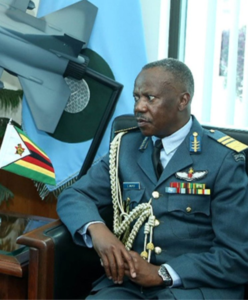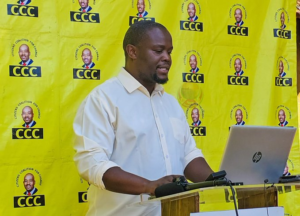ZIMBABWE’S ELECTORAL TRUST CRISIS: NAVIGATING THROUGH TURBULENT POLITICAL WATERS

In the realm of Zimbabwe’s turbulent political landscape, a recent study by Afrobarometer casts a spotlight on a significant trust deficit among voters towards the Zimbabwe Electoral Commission (ZEC). Merely 47% of the populace exhibits confidence in the commission’s capability to execute credible elections, a concerning statistic that underscores a deep-seated skepticism within the nation’s democratic processes.
This prevailing distrust is rooted in the contentious 2018 elections. These elections, as reported by the study’s respondents, were tainted by unfairness, further eroding public confidence in the electoral system. The incumbent Zanu-PF’s President Emmerson Mnangagwa clinched a narrow victory with 50.8%, barely eclipsing his main rival, Nelson Chamisa from the Movement for Democratic Change Alliance, who secured 44.3% of the votes. The delayed announcement of results, which spanned three days, only intensified public unease.
The spotlight now shifts back to the impending electoral showdown between Mnangagwa and Chamisa, scheduled between 26 July and 26 August. Amidst this buildup, the ZEC finds itself in the crosshairs over its non-disclosure of the voters’ roll, a decision justified under the banner of protecting public data in line with the Data Protection Act. Priscilla Chigumba, the ZEC chairperson, underscored this stance in a recent parliamentary committee, citing the Act’s mandate for the commission to ensure secure dissemination of voters’ data. This explanation, however, did little to quell the skepticism, especially following the rejection of a legal challenge by opposition legislator, Allan Norman “Rusty” Markham, by the High Court.
In a recent update, ZEC disclosed a rise in registered voters from five million in 2018 to six million, a statistic crucial in the upcoming electoral tussle. Zanu-PF, setting an ambitious target, aims to secure the majority of these voters, effectively leaving a meager one million for the opposition to contest over. This claim was bolstered by their declaration of a three-million turnout in the recent primary election, a figure they tout as evidence of their electoral might.
However, the Afrobarometer study reveals an intriguing facet: for most Zimbabweans, policy promises are the key determinants of their voting choices, alongside a noticeable provincial bias towards local candidates. This insight sheds light on the nuanced motivations driving the electorate’s decisions.
A silver lining in this clouded political milieu is the public’s overwhelming endorsement of democratic principles. An impressive 81% advocate for the election loser to accept defeat and collaborate with the winning party in national development. This sentiment signals a potential shift from the election-related violence and disputes that have plagued Zimbabwe’s political scene since the turn of the century.
The country’s recent history is marred by incidents of conflict, exemplified by the violent aftermath of the 2017 coup against former President Robert Mugabe, vividly captured on live television. Chamisa’s subsequent legal challenge against the election results, and his refusal to acknowledge Mnangagwa’s presidency, only deepened the fissures in the nation’s political fabric.
In a proactive stance, President Mnangagwa has cautioned against inviting observers from “hostile” countries, accusing them of undermining Zimbabwe’s sovereignty. Despite these entanglements, the Afrobarometer report reveals a resilient belief in the efficacy of democratic processes. A majority of citizens believe in the power of elections to remove ineffectual leaders, and a significant portion acknowledges the role of parliamentarians in representing the populace.
In conclusion, amidst a climate rife with doubt and political upheaval, the unyielding determination of Zimbabweans to uphold democratic values emerges as a beacon of hope, illuminating the path towards a more stable and inclusive political future.



